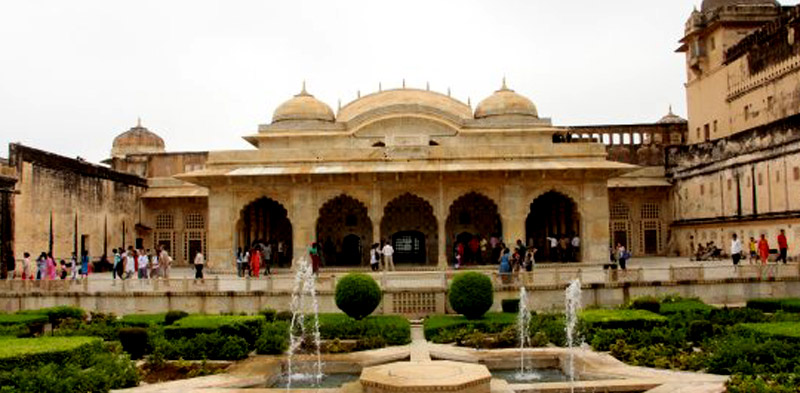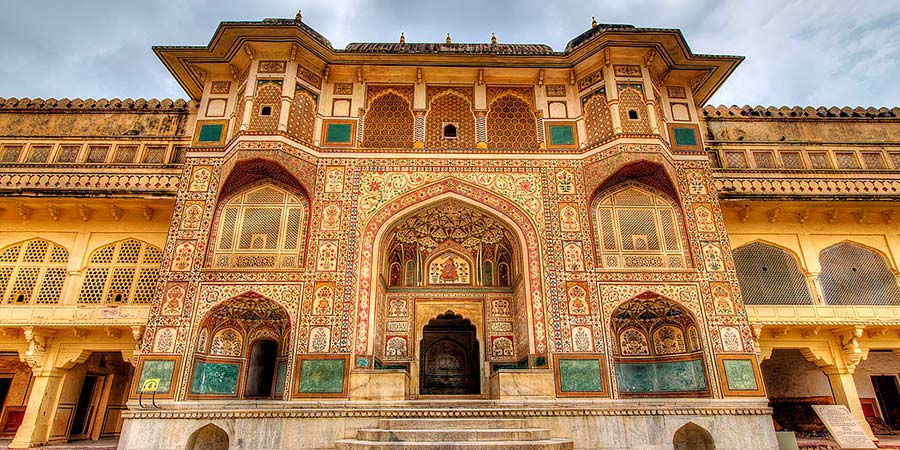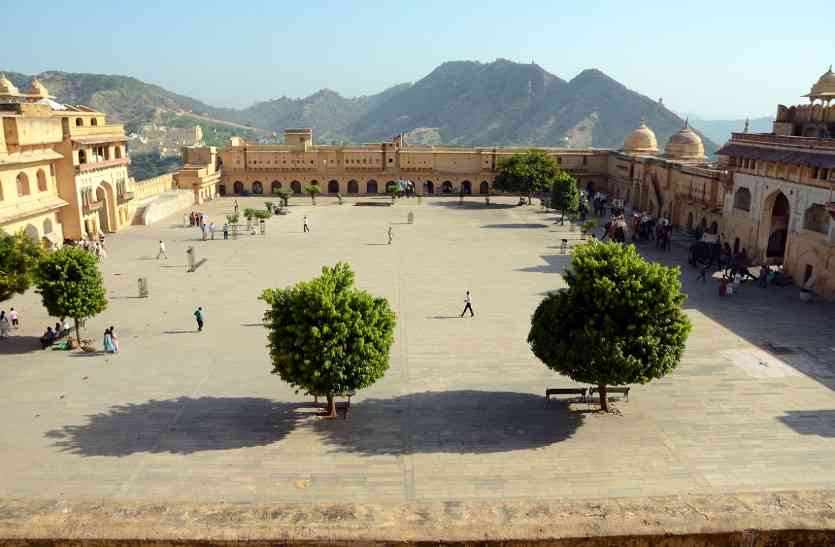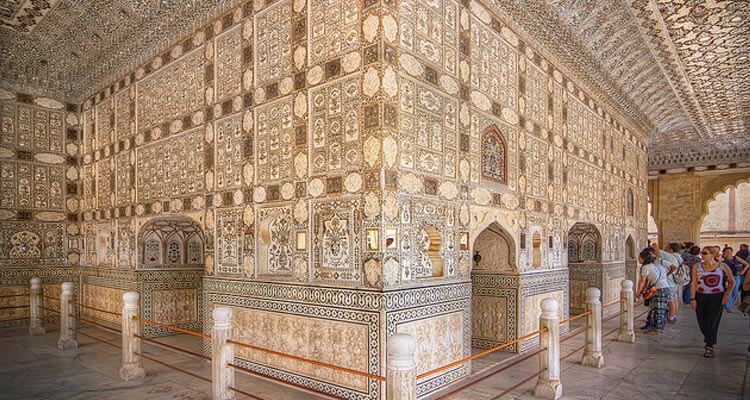The glamorous fort overlooking at Maota Lake, Amer Fort is located on the hilltop with the same pride as of bygone era. The castle is almost 11 kilometers away famous away from the Jaipur and draws a major attraction towards its gigantic architecture. It is the UNESCO World Heritage Site listed under Hillforts of Rajasthan with Ranthambore Fort, Chittorgarh Fort, Jaisalmer Fort, Kumbhalgarh Fort, and Gagron Fort. Amer Fort is featured with Hindu artistic style element along with red sandstone and marble flooring. The opulent fortress consists of many architectures, temples, and courtyards.
History of Amer Fort

The royal citadel got its name from Ambika Temple and Shiva Temple as Amer. Gigantic Amer Fort is dated back to the 10th CE and was constructed by the Meenas. Although the structure has some changes when Maharaja Man Singh (the mighty ruler of Jaipur) took it over and further, he constructed the castle in the early 17th CE. The fort is located on Cheelon ka Teela which means the hillock on which the eagles live. The gigantic walls of Amer Fort are the world’s third longest wall after Kumbhalgarh fort and Wall of China.
Major attractions of Amer Fort
Some of the major attractions of Amer Fort are

image source
Shila Devi Temple – The religious temple in the fort is dedicated to Kali or Shakti. The stone idol of Shila belongs to Bengal- where the majority of people worship Kali. It is believed that all the warriors worship Shakti before they leave for war.

Shila Devi Temple – The religious temple in the fort is dedicated to Kali or Shakti. The stone idol of Shila belongs to Bengal- where the majority of people worship Kali. It is believed that all the warriors worship Shakti before they leave for war.

image source
Diwan-e-Aam – The hall of the public audience where king conducts their daily meet with the general public in which they listen to their grievances or to make a public announcement. The beautifully designed pillars and double elephant capital on the top of these pillars are worth noticing.

Diwan-e-Aam – The hall of the public audience where king conducts their daily meet with the general public in which they listen to their grievances or to make a public announcement. The beautifully designed pillars and double elephant capital on the top of these pillars are worth noticing.

image source
Ganesh Pol – It is the real entrance of private areas of the fort which means Amer Palaces. The entrance is beautifully decorated with fresco art, motifs, and many other designs.

image source
Ganesh Pol – It is the real entrance of private areas of the fort which means Amer Palaces. The entrance is beautifully decorated with fresco art, motifs, and many other designs.

image source
Zenana – This place refers to female quarters in the palace. Strict rule was applicable to the fact that men outside the family cannot be entered in this area. Only limited access to this quarter was given to the men of the family.

image source

image source
Jaleb Chowk – Since you entered into the fort through Suraj Pol and Sun Gate, you would find an open courtyard surrounded on three sides with yellow structures and one side of a wall overlooking the water tank.

image source

image source
Sheesh Mahal – The most attractive part of Amer Fort is Sheesh Mahal which is also known as the Mirror Palace. This palace is designed with small mirrors on the walls.


image source
Sukh Mahal – An air-conditioned area with water channels running throughout the area to keep the hall cool in summers.

image source
Sukh Mahal – An air-conditioned area with water channels running throughout the area to keep the hall cool in summers.

image source
Suhag Mandir – A pavilion on the top with a semi-dome painted in the pale green and red. It is a place where married women perform their rituals or celebrations.

image source

image source
Baradari of Man Singh Palace – Is the oldest part of this fort and the version 1 of Diwan-e-aam. It is located in the middle of another courtyard which is surrounded by the living quarters.
Anokhi Museum – The museum is dedicated to Indian Textiles including the famous Rajasthani. The museum is worth visiting, but the haveli in its architecture has an exquisite reinstatement story.
Things to keep in mind
- It takes 2-3 hours to see the richness of the glamorous fort.
- You must wear comfortable shoes as you may need to go up and down.
- Hire a guide to hear the glorious stories associated with this fort. You can also avail an audio guide from the ticket counter.
- To explore the Anokhi Museum you would need at least two hours.
You must not miss the special sound and light show is held in the premises of the fort which is the best way to understand the history of iconic Amer Fort. Dazzling lights and vivid sound takes you to the historic walk of Amer Fort. You can include this attraction in your travel plan under Rajasthan Tour Package.

Comments
Post a Comment